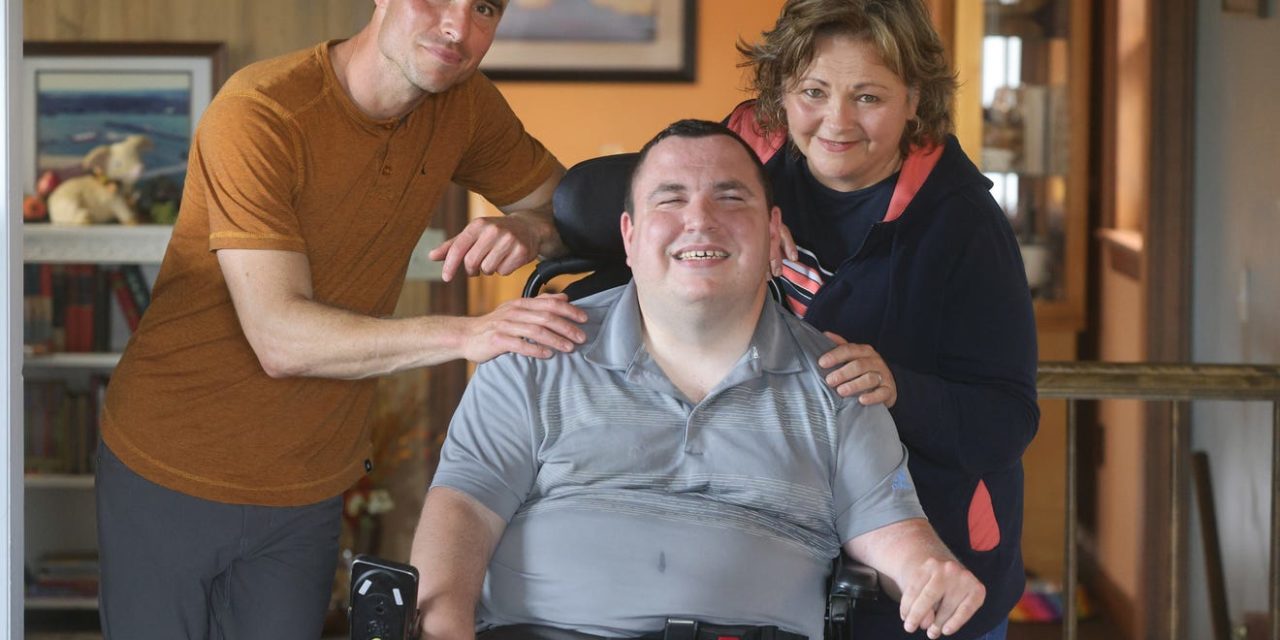If the scope of President Joe Biden’s social spending plan is too large to grasp, then consider Nancy Slomba of Western New York state.
She spends 84 hours a week caring for her son Joe Slomba, who has cerebral palsy and needs assistance to bathe, get in and out of bed and leave the family’s house.
The 59-year-old resident of a small Wyoming County town about 35 miles east of Buffalo gets paid $12.50 an hour to care for Joe through a New York state-based program. She and Joe’s twin brother, Ben, split the caregiving hours throughout the week.
But they’re making less per hour than they’d make working at McDonald’s. Joe’s care needs mean they can’t get other jobs, and there aren’t home care workers available in their rural county to share some of the caregiving duties.
“I’m exhausted,” Slomba said. “You’re not going to leave your family member, yet you’re not making enough money.”
Slomba is one of millions who care for their loved ones in the United States. In 2020, 48 million people in the U.S. provided unpaid care to an older adult or individual with health or functional needs. Many live in old industrial cities in places like Upstate New York and Michigan. A significant number are persons of color.
Those who cannot care for their loved ones themselves hire home care workers — a profession that is adding more new jobs than any other field in the American economy this year, but which struggles to attract and keep workers due to a dismal track record of low wages and scant benefits.
President Joe Biden made the untangling of this nationwide dilemma a top priority of his administration, earmarking a $400 billion chunk of his initial infrastructure agenda, titled the American Jobs Plan, to tackle home and community-based care. The funding would phase in over eight years.
For the rest of the story, go to the Rochester Democrat & Chronicle site.
About this project
This and related stories on the Biden administration’s caregiving plans are produced through the New York & Michigan Solutions Journalism Collaborative, a partnership of news organizations and universities dedicated to rigorous and compelling reporting about successful responses to social problems. The group, supported by the Solutions Journalism Network, has been producing stories on potential solutions to the challenges facing caregivers of older adults.





